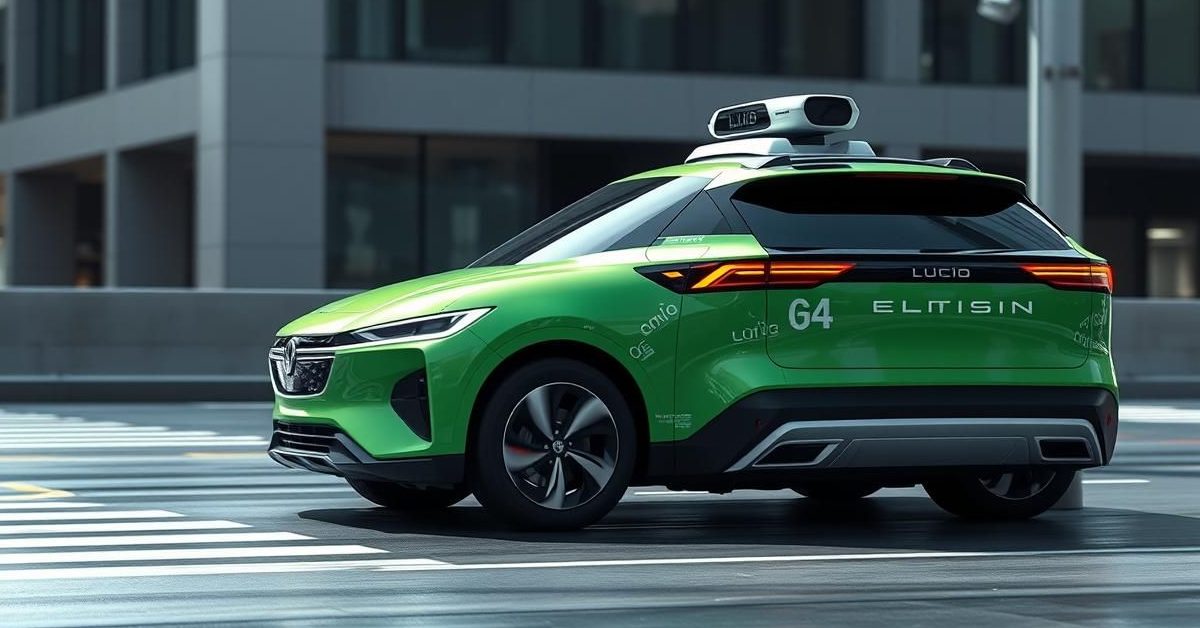Uber is making a significant move back into the robotaxi space, investing $300 million in electric vehicle maker Lucid as part of a major deal that includes autonomous technology from Nuro.
A Bold New Partnership
This ambitious collaboration aims to launch robotaxi services in a major U.S. city by late next year. The plan involves Uber acquiring and deploying more than 20,000 Lucid Gravity SUVs, which will be equipped with Nuro’s advanced autonomous vehicle (AV) technology.
The rollout is set to begin in 2026 and will unfold over a period of six years. This significant investment highlights a renewed push into self-driving cars, a sector that has seen both high hopes and considerable challenges.
Uber’s Return to Robotaxis
Uber had previously exited the robotaxi development scene in 2020. However, the company has since pivoted its strategy, focusing on strategic partnerships rather than in-house development.
This latest deal with Lucid and Nuro follows other key collaborations, including partnerships with Waymo, Aurora, and a recent agreement with Volkswagen to deploy its ID.Buzz vans for robotaxi service in Los Angeles next year.
The Challenging Path to Autonomy
Commercializing autonomous vehicle technology has proven to be more difficult than many initially anticipated. High development costs, complex regulatory hurdles, and even federal investigations have led some companies, like General Motors’ Cruise, to temporarily halt or scale back operations.
Despite these setbacks, the race for self-driving dominance continues. Companies like Amazon.com’s Zoox are testing robotaxis without traditional manual controls, with plans to launch commercial services in Las Vegas soon.
The Competition Heats Up
Tesla recently launched a limited robotaxi trial in Austin, Texas, with CEO Elon Musk signaling a rapid expansion to other U.S. cities this year. Meanwhile, Alphabet’s Waymo has been steadily growing its operations for years, now operating in several U.S. cities with approximately 1,500 vehicles and having surpassed 100 million miles of autonomous driving.
A prototype of the Lucid-Nuro robotaxi is already undergoing testing. It is currently operating autonomously on a closed circuit at Nuro’s testing facility in Las Vegas, showing promising early results.
Lucid and Nuro’s Strategic Vision
Lucid’s interim CEO, Marc Winterhoff, noted that the company is expanding beyond its traditional focus on EV technology leadership. They are actively pursuing partnerships and venturing into new areas previously unexplored, such as robotaxi fleets.
Nuro, co-founded by former Waymo engineers, initially focused on last-mile delivery vehicles. However, the company has now broadened its scope to provide its self-driving technology for both commercial and passenger vehicles, positioning itself as a key enabler for autonomous mobility.
- Uber will invest $300 million in Lucid for a robotaxi venture.
- The deal involves over 20,000 Lucid Gravity SUVs equipped with Nuro’s AV tech.
- Robotaxi services are set to begin in a major U.S. city by late 2025.
- This marks Uber’s renewed focus on partnerships in the autonomous driving sector.
This collaboration underscores a significant belief in the future of autonomous ride-sharing, even as the industry continues to navigate a complex regulatory and technological landscape.














